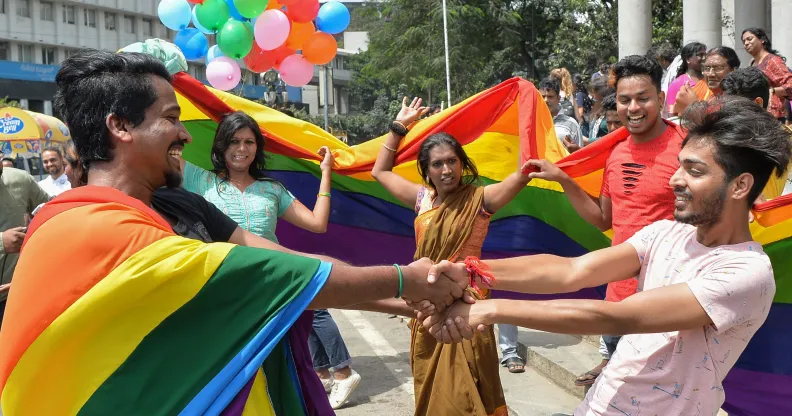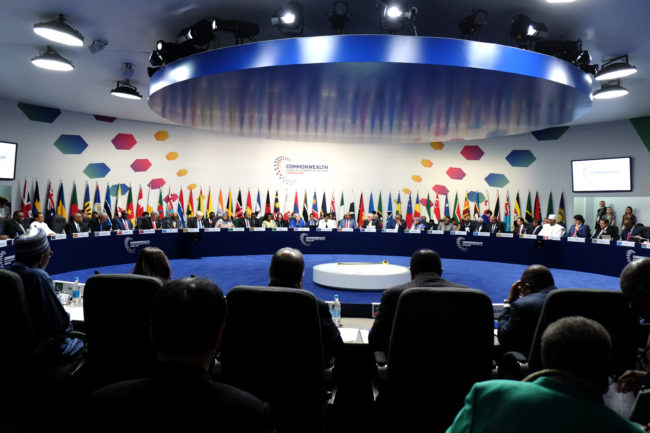IDAHOBIT: Protecting and improving LGBT rights in the Commonwealth

Indian members and supporters of the LGBT community celebrate the decriminalisation gay sex on September 6, 2018. (MANJUNATH KIRAN/AFP/Getty Images)
David Isaac chairs the Equality and Human Rights Commission and the Commonwealth Forum of National Human Rights Institutions. Here, he writes about the International Day Against Homophobia, Biphobia, Interphobia and Transphobia (IDAHOBIT).
Today is the International Day Against Homophobia, Biphobia, Interphobia and Transphobia (May 17). It is an important moment when the global community can come together to celebrate the diversity of sexual orientations and gender identities. It is also an opportunity for human rights defenders to draw attention to the ongoing campaign for the protection of the human rights of all LGBT+ people.
As we know, across the world we have made significant progress to advance LGBT+ rights in many countries, but there is still much that needs to be done so people in our communities can feel safe and open about their identity.
In the Commonwealth, the LGBT+ community faces daily discrimination and abuse or feels unable to be open about their sexual orientation or gender identity. There are anti-homosexuality laws in 35 out of 53 nations in the Commonwealth which criminalise people for being who they are and loving those they choose to love.

Prime Minister of the United Kingdom, Theresa May chairs a meeting of the Commonwealth Heads of Government (CHOGM) on April 19, 2018 in London, England. (Photo by CHOGM Pool via Getty Images)
But there is change happening and we must continue to celebrate all that has been achieved to ensure that the human rights of LGBT+ people are respected.
In 2018 alone, we saw the judiciary in both Trinidad and Tobago and India overturn their sodomy laws. And, eSwatini held its first ever Pride parade in the capital city of Mbabane. These are significant steps and should not be underestimated. The brave work of activists and lawyers in these countries sends a powerful signal to many others around the world.
‘There is still a long journey ahead’ for LGBT+ rights in the Commonwealth
Yet I do acknowledge that there is still a long journey ahead to ensure that all Commonwealth citizens are free to be who they are without fear of discrimination, imprisonment or physical punishment. That’s where the work of National Human Rights Institutions comes in. Since April 2018 Great Britain’s Equality and Human Rights Commission has been Chair of the Commonwealth Forum of National Human Rights Institutions.
The members of this group are all passionate human rights defenders in their own countries and are often faced with significant challenges – especially in upholding the rights of their LGBT+ communities. As the Chair of the Commonwealth Forum, I am proud that the NHRIs identified LGBT+ rights as one of the priority human rights issues for us to focus on. We are making good progress and building important foundations for the future work of the Forum.
Looking back at the achievements from last year, there is already huge commitment and momentum to drive change. Using the talent and commitment of all our NHRI colleagues – and learning lessons from the work of colleagues in countries where progress has already been made – I am very confident that we can build a real movement to deliver improved LGBT+ rights across the whole of the Commonwealth.
The views reflected in this opinion piece do not necessarily reflect the opinions of PinkNews.

